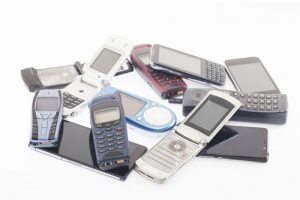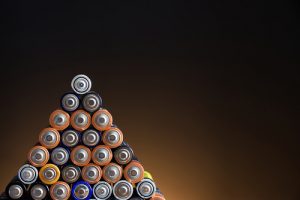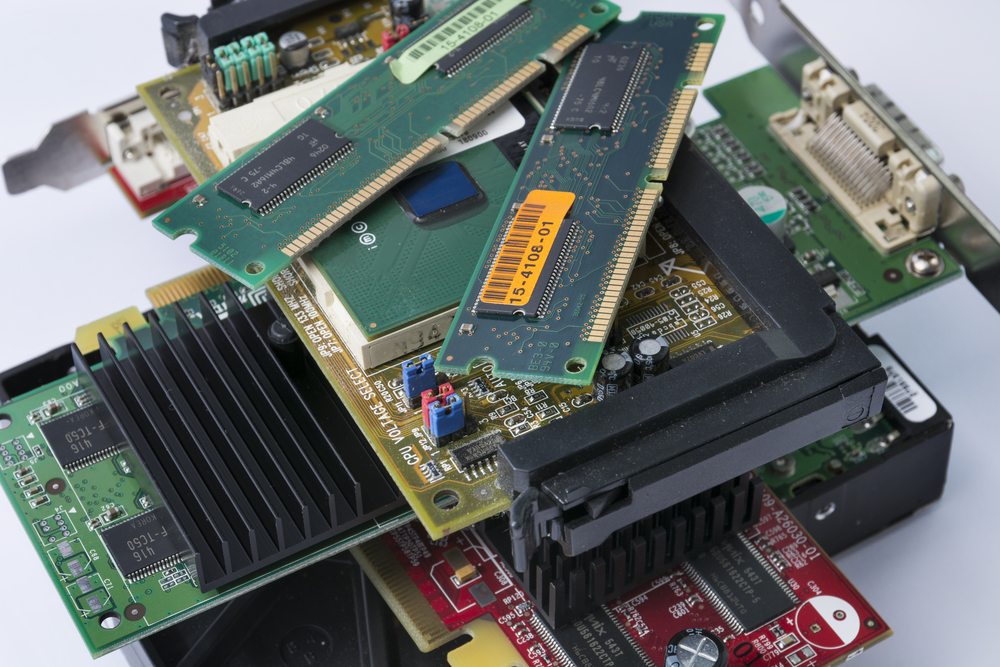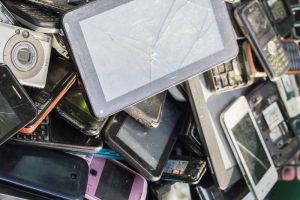 One city refuses to reinstate its electronics recycling program despite residents’ frustration, and remote Alaska receives attention for e-scrap cleanups.
One city refuses to reinstate its electronics recycling program despite residents’ frustration, and remote Alaska receives attention for e-scrap cleanups.

 One city refuses to reinstate its electronics recycling program despite residents’ frustration, and remote Alaska receives attention for e-scrap cleanups.
One city refuses to reinstate its electronics recycling program despite residents’ frustration, and remote Alaska receives attention for e-scrap cleanups.
Apple recovered around 61 million pounds of e-scrap in 2015, according to the company. Continue Reading
![]() Whether it’s a deal on data destruction or an opportunity for extra education, multiple organizations are taking full advantage of the attention Earth Day brings to the recycling world. First celebrated in 1970, Earth Day will be held this Saturday, although some groups are recognizing all of April as “Earth Month.”
Whether it’s a deal on data destruction or an opportunity for extra education, multiple organizations are taking full advantage of the attention Earth Day brings to the recycling world. First celebrated in 1970, Earth Day will be held this Saturday, although some groups are recognizing all of April as “Earth Month.”
 Millions of electronics sit unused in Wisconsin homes, according to a report from the state’s e-scrap program, and awareness of recycling options is growing. Continue Reading
Millions of electronics sit unused in Wisconsin homes, according to a report from the state’s e-scrap program, and awareness of recycling options is growing. Continue Reading
 An e-scrap group that advocates for exports of used electronics has detailed a new mechanism for funding e-scrap collection in an area of the world that has long been perceived as a materials dumping ground.
An e-scrap group that advocates for exports of used electronics has detailed a new mechanism for funding e-scrap collection in an area of the world that has long been perceived as a materials dumping ground.
 For the 21st consecutive year, Call2Recycle set a new record in its battery and cellphone collection volume last year. But 2016 also marked an important year, because much of the growth was in collection of single-use batteries.
For the 21st consecutive year, Call2Recycle set a new record in its battery and cellphone collection volume last year. But 2016 also marked an important year, because much of the growth was in collection of single-use batteries.
 A trial program in Europe is exploring more efficient ways of recovering a range of raw materials from used electronics and appliances.
A trial program in Europe is exploring more efficient ways of recovering a range of raw materials from used electronics and appliances.
 A magazine profile explores the right-to-repair debate, and a report points to new devices that are out of compliance with EPEAT’s e-plastics labeling standards.
A magazine profile explores the right-to-repair debate, and a report points to new devices that are out of compliance with EPEAT’s e-plastics labeling standards.
 Product lightweighting is preventing manufacturers from increasing e-scrap collection volumes in Canada’s most populous province.
Product lightweighting is preventing manufacturers from increasing e-scrap collection volumes in Canada’s most populous province.
 A Chicago suburb makes changes to its e-scrap recycling program, and federal prison funding is affecting electronics recycling in New Mexico.
A Chicago suburb makes changes to its e-scrap recycling program, and federal prison funding is affecting electronics recycling in New Mexico.
